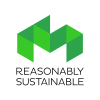The Value of a Sustainability Strategy in the Tender Process
In today’s competitive landscape, businesses face increasing pressure to demonstrate their commitment to sustainability. As organisations seek to partner with suppliers and service providers, the inclusion of a robust sustainability strategy has become a crucial factor in the tender process. This article explores the multifaceted benefits of integrating sustainability into tender submissions and how it can enhance a company’s competitiveness.
1. Meeting Stakeholder ExpectationsA well-defined sustainability strategy demonstrates an organisation’s commitment to addressing the environmental and social issues that matter to stakeholders. Clients, investors, and the public are increasingly scrutinising companies’ sustainability practices, expecting transparency and accountability. By embedding sustainability into their tender responses, businesses can effectively communicate their values and alignment with stakeholders’ expectations, thereby building trust and credibility.
2. Enhancing Competitive AdvantageIncorporating sustainability into the tender process can set a company apart from competitors. As more organisations prioritise sustainable practices, those that demonstrate a strong sustainability strategy can leverage it as a unique selling point. This differentiation can be particularly advantageous in industries where sustainability is not yet widespread, allowing businesses to position themselves as leaders in their sector and attract clients who are committed to sustainability.
3. Reducing Risks and CostsA comprehensive sustainability strategy can help identify and mitigate potential risks associated with environmental regulations and resource management. By proactively addressing sustainability issues, businesses can minimise the risk of compliance failures, legal penalties, and reputational damage. Moreover, implementing sustainable practices often leads to operational efficiencies, which can reduce costs over time. This dual benefit can make organisations more appealing in the tender process, demonstrating their foresight and responsibility.
4. Attracting New Business OpportunitiesMany organisations now have sustainability criteria as part of their procurement process. By presenting a clear sustainability strategy in tender submissions, companies can access a wider range of opportunities. This is particularly relevant for public sector contracts, where sustainability and social value are increasingly prioritised. A strong sustainability profile can help businesses qualify for tenders that may have been out of reach previously. At Reasonably Sustainable, we have successfully assisted companies in securing business by developing tailored sustainability strategies that resonate with tender requirements.
5. Fostering InnovationIntegrating sustainability into business operations can stimulate innovation. As organisations seek to meet sustainability goals, they often develop new products, services, and processes that are more environmentally friendly. This focus on innovation can enhance a company’s reputation and attract clients who value creativity and sustainability. Furthermore, fostering a culture of innovation can lead to improved employee engagement and satisfaction, further benefiting the organisation.
ConclusionIncorporating a sustainability strategy into the tender process is no longer just a nice-to-have; it has become a vital aspect of business strategy. By meeting stakeholder expectations, enhancing competitive advantage, reducing risks and costs, attracting new business opportunities, and fostering innovation, organisations can position themselves as leaders in sustainability. As the demand for sustainable practices continues to grow, those who prioritise sustainability in their tender submissions will be better equipped to thrive in an evolving marketplace.
At Reasonably Sustainable, we are proud to have helped businesses secure valuable contracts through effective sustainability strategies, demonstrating that sustainability is not just a responsibility but a pathway to success.
I am an experienced sustainability professional and educator with expertise in developing and implementing sustainability strategies that align with both corporate objectives and industry standards.…
The Role of SMEs in Attaining the Sustainable Development...
The Importance of British SMEs in Contributing to...
More Articles
Customer Case Study
What is Sustainability?
Overcoming Barriers to Sustainability: A Simple Guide for...
Would you like to promote an article ?
Post articles and opinions on Professionals UK
to attract new clients and referrals. Feature in newsletters.
Join for free today and upload your articles for new contacts to read and enquire further.



